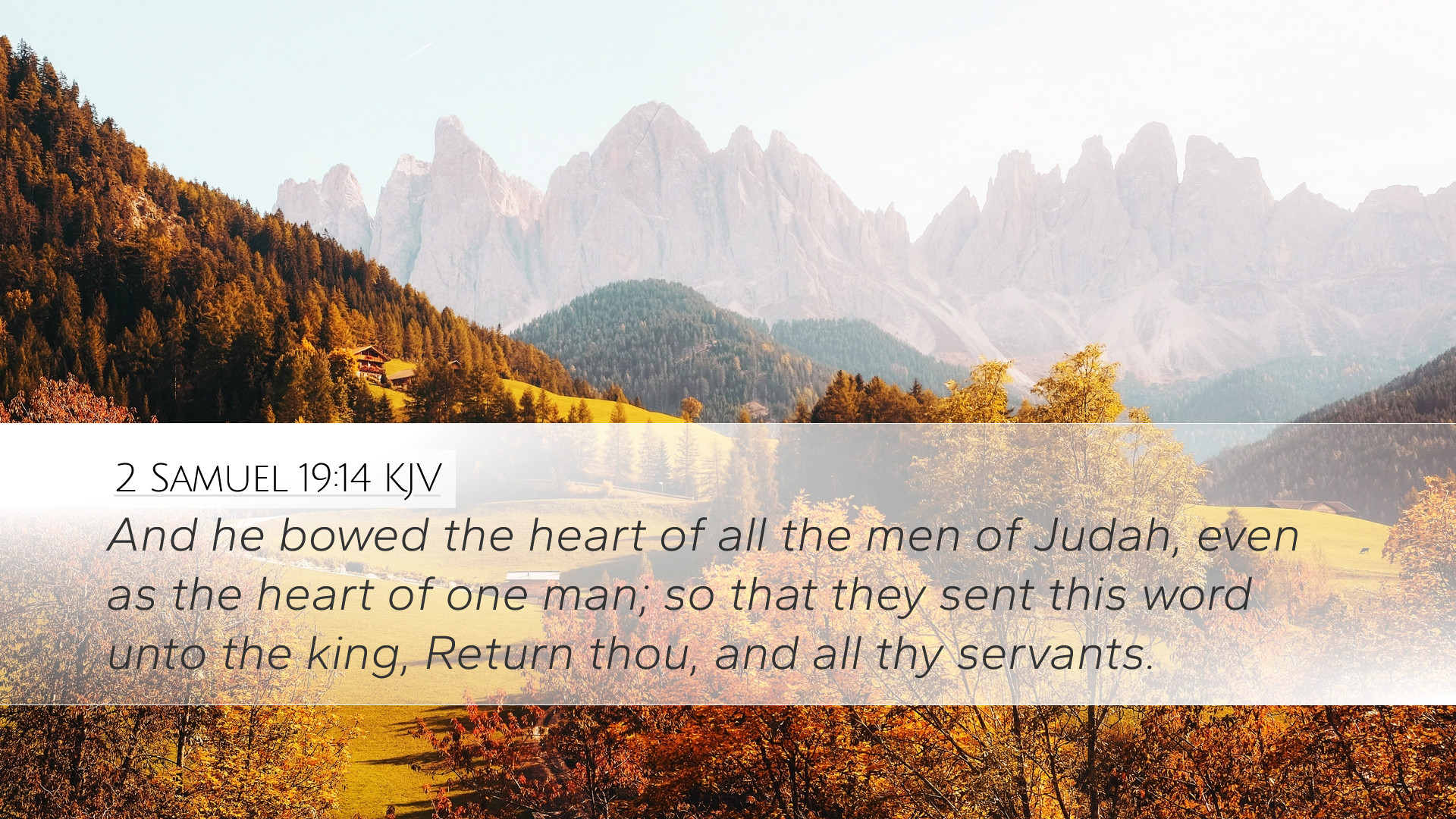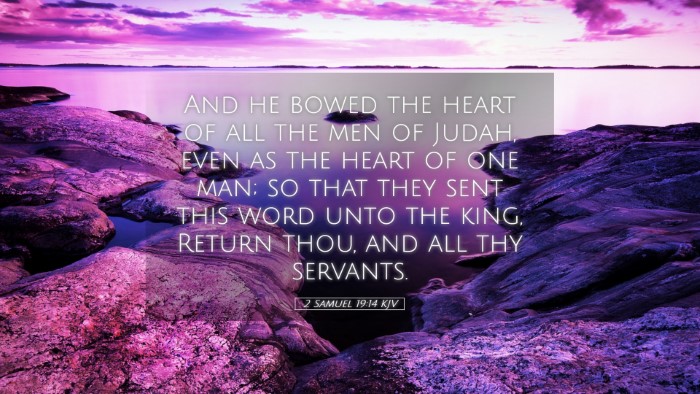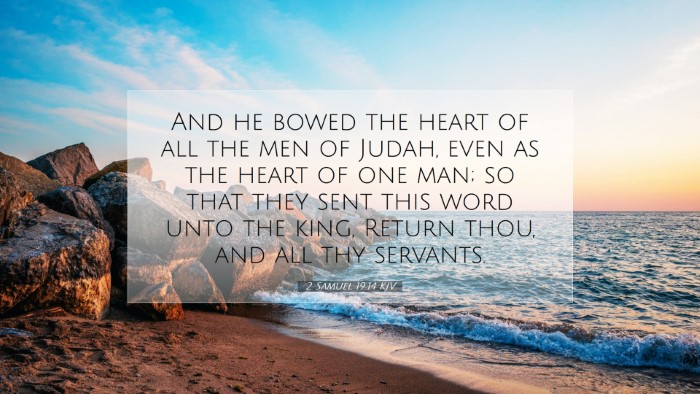Commentary on 2 Samuel 19:14
2 Samuel 19:14 states:
"And he bowed the heart of all the men of Judah, even as the heart of one man; so that they sent this word unto the king, Return thou, and all thy servants."
Introduction
This verse occurs during a pivotal moment in Israel's history, following the rebellion of Absalom. David, having faced significant personal and political upheaval, is invited back to Jerusalem by the men of Judah. This commentary seeks to draw insights from public domain sources, interpreting the significance of this event for a deep understanding of leadership, reconciliation, and authority in the biblical narrative.
The Context
As we examine 2 Samuel 19, we must consider its broader context within the narrative of David's kingship and the events surrounding Absalom's rebellion. Following Absalom's death, David is in a state of mourning, yet the kingdom is in turmoil. The division between the tribes is evident, and the need for unity is pressing. The men of Judah’s initiative to reconcile with David illustrates both a political maneuver and a poignant emotional response.
Analysis of Key Phrases
- "He bowed the heart of all the men of Judah": This phrase emphasizes the power of David’s character and leadership. Matthew Henry suggests that David’s integrity and his past deeds had earned him this loyalty. His ability to connect emotionally with his followers demonstrates the essence of effective leadership—uniting people towards a common goal.
- "Even as the heart of one man": This metaphor indicates a rare unity among the men of Judah. Albert Barnes notes that this reflects a collective resolution that is both admirable and rare, suggesting that a strong leader can evoke a singular focus among followers, creating a powerful bond that transcends individual grievances.
- "Return thou, and all thy servants": The call for David’s return reflects both a desire for stability and recognition of his rightful place as king. Adam Clarke points out that this shows the people's longing for leadership and order after the chaos of rebellion, underscoring the importance of rightful authority in governance.
Theological Implications
This moment in scripture provides rich theological insights relevant for pastoral care and congregational life:
- Reconciliation and Forgiveness: David’s situation illustrates the necessity of reconciliation following conflict. His return signifies restoration, not only of his kingship but also of relationships. Pastors can draw parallels to the Christian principle of restoring one another in truth and love.
- Leadership and Influence: David’s ability to unite is a lesson in the nature of biblical leadership. He exemplifies a leader who inspires loyalty through personal integrity and emotional connection rather than through coercion.
- The Role of Community: The collective call from the men of Judah underscores the importance of community in decision-making. It serves as a model for how congregations ought to act in unity under rightful leadership, promoting collaboration and collective identity.
Practical Applications
For pastors, students, and theologians, this text presents several practical applications:
- Encourage Unity: Engage congregations in efforts that promote unity, emphasizing the value of collective purpose and identity, much like the men of Judah.
- Foster Authentic Leadership: Promote leadership styles that prioritize integrity and emotional intelligence, encouraging leaders to cultivate deep, personal connections with their communities.
- Address Conflict Wisely: Use the narrative as a framework for conflict resolution within the church, acknowledging past grievances while promoting a path of forgiveness and restoration.
Conclusion
2 Samuel 19:14 captures a significant moment of transition and reconciliation in the Israelite narrative. Through the insights of esteemed biblical commentators, we see the profound impact of David's leadership and the collective heart of Judah. This verse not only enriches our understanding of biblical history but also offers timeless principles applicable to faith communities today. The heart of the people was moved, and in that movement towards David, we witness a powerful reminder of the call to unity and the necessary role of Godly leadership.


